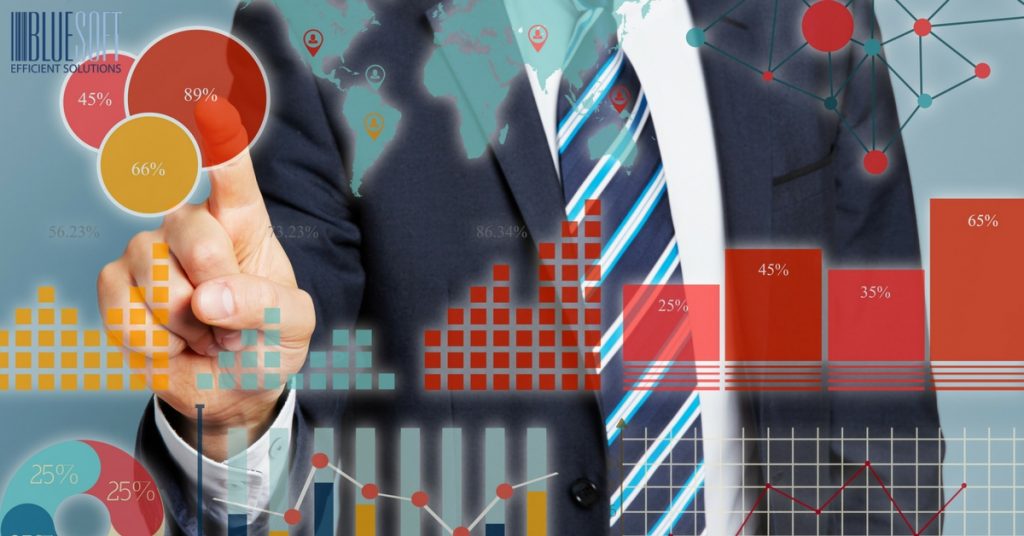How to make more money in your business with Big Data (practical examples)

To run a successful business nowadays, you have to be competitive. It’s dog eat dog almost on every market, and only highfliers can survive. The question is: How to do it? How to reach the top (and remain there)? One way to achieve it is to gain an advantage over your competitors through information.
For centuries, people who had information wielded power. The same applies today. The right data gives you intelligence. If you’re more knowledgeable than your competitors, you can be a step ahead of them, take quicker decisions and make money faster. If you are able to influence a market, you can create the market you need. The others will have to adapt and play into your hands.

Google sets an example
For starters, let’s take a look at Google. Google doesn’t owe its current position to the search engine they created (at least not exclusively). It wasn’t the first search engine on the Internet (anyone remembers Altavista or Lycos?).
Google did what no one before had done on such a scale. The company started gathering user data and then began creating collateral services like Gmail and giving them away to people just to attract subscriptions. The more people were becoming engaged, the more data Google had. The company began gathering, processing and analyzing the data, and then started to use it to their benefit, to sell ads. It’s ad sales that generate most profit at Google, not the search engine or mail servers, which are offered for free. Or… Do they really come for free? We all pay for these services with our private data, which Google turns into Big Data, and eventually – into a big stack of dollars.
Why not follow Google’s example? Take your customers’ data, turn it into Big Data and then cash it out. Google could do it, so why couldn’t you?
How can Big Data benefit small businesses?
Nowadays, you don’t have to spend a fortune on Big Data processing. You can analyze it relatively cheaply in the cloud, so the barrier to entry is low. And Google can really change the way your business operates. No one questions the applicability of Big Data analysis nor the value that Big Data contributes. Even small businesses can benefit. The question is how they can get the most out of Big Data?
Let’s imagine that you want to set up a new store. Before you choose the location, it would be desirable to perform some background data check. You analyze the neighborhoods, research the commute patterns, find out if the local residents have any specific habits, determine what’s their social and material status, etc. This is essential information that can help you not only choose the location for your store, but also define the product range you want to sell.
Uber Big Data experience
Here’s another example. You run a taxi service company that makes it possible for your customers to order a cab using an Android or IOS app. It’s a great feature that makes your customers’ lives much easier by enabling them to summon a vehicle to a GPS location and pay for a ride with their phone. It also opens new opportunities for you. You can gather data such as the start and stop location, ride date and time, or credit card issuer. You can also ask your customers to share their GPS location when they’re not using the service. And once you get that data, it’s up to you how you use it.
For instance, you may find out where your customers usually start their rides at a given the time of day and move more cars to these areas. If you discover that your customers frequently leave a specific hotel or a restaurant, maybe you can offer those places in-car advertising services? You could install LCD screens and start showing adverts depending on the time of day and final destination? According to your data analysis, 90% of your customers going to a specific area in the evening are heading for dinner, so maybe it would be a good idea to make more money from adding such ad services?

Ever needed ‘free’ Wi-Fi?
And yet another example. We all know it. You keep running your store from the first example. It has expanded, and now it’s attracting more and more people. You know exactly how much time your customers spend shopping as you give them free Wi-Fi. But nothing in life comes for free. You charge them with data; whoever visits your store, has to register to gain network access and agree to share some information with you. What information? Well, it can be the date and time they arrived and left, or position with regards to access points, so that you know exactly where every person is and what stores they visit.
If you analyze this data, you will not only find out that the total number of visitors is growing and so you need to extend your parking lot to accommodate them. You’ll be able to get much more valuable information. You may identify the busiest days and design custom marketing campaigns to support them, or find out which stores are visited most frequently thanks to position tracking and suggest some additional campaigns to promote those that are less popular. Maybe you will discover that customers who stay for more than an hour in your marketplace are more willing to spend money than those who leave sooner. It would be a good idea to retain that second group somehow and invite them to spend more time and money there, maybe by investing in a food court?
Big Data, big leap
With the right pairing of data, you can identify new, profitable areas for your business. The key is to locate these data pairs and develop a new strategy to grow your business, find new opportunities or create savings.
Big Data analysis gives you a lot of opportunities. If you haven’t collected your own data yet, you can buy it to perform analysis to help your business case. Buying demographic or geolocation data has become quite widespread. There are large consumer data brokers on the market who gather and sell Big Data datasets to other businesses. They farm data from monitoring literally everything we do. Such data can provide highly valuable insight not only to you but to your competition alike.
Your competitors have access to the same data sources as you, and they’re free to analyze outputs. Whoever gets there first, gains the upper hand.
Don’t waste your time and start analyzing data, finding correlations, developing new ideas and… growing your business. Make the first step now to leap ahead with Big Data!
What Can We Do For Your Business?





